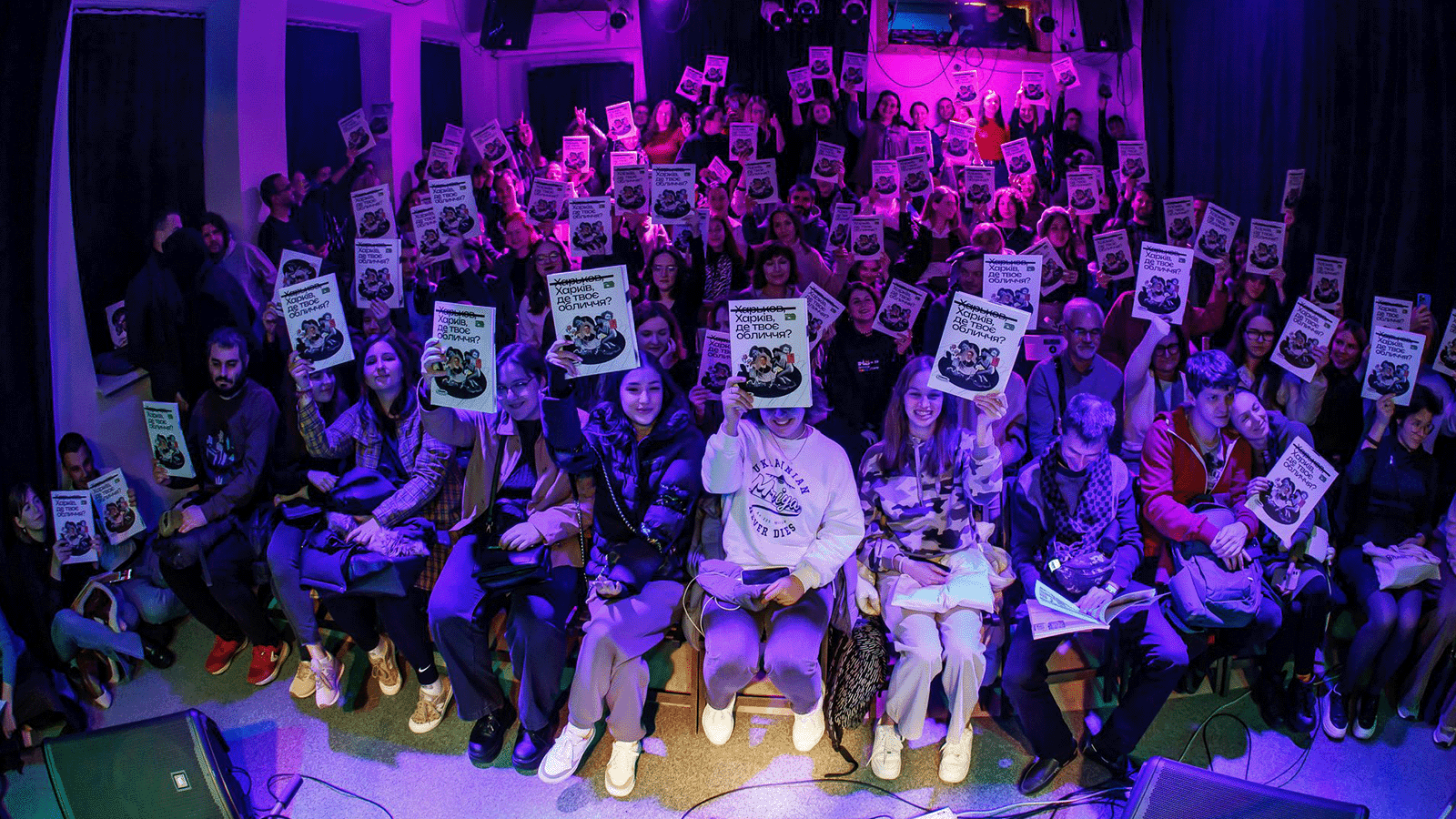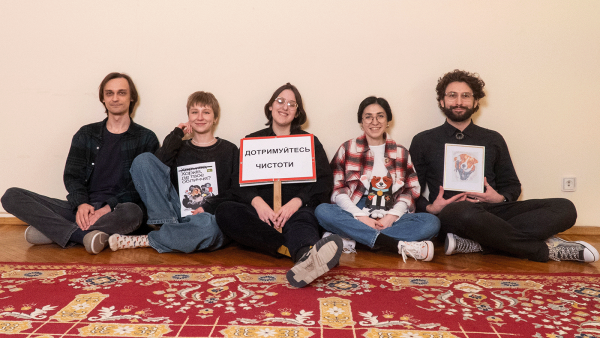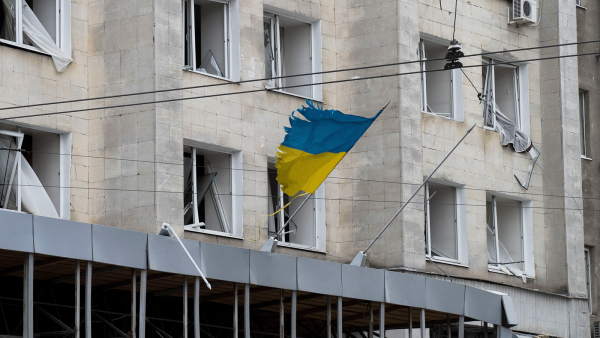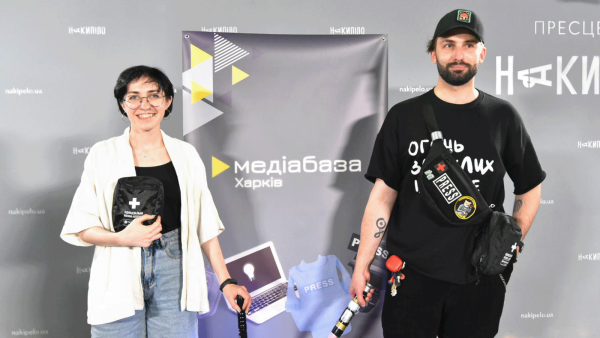
“We work to support and promote civil society and activism in Kharkiv,” says Kateryna Pereverzeva, “We want to serve this community in the media sphere and be the key source of information about all-things-cultural.”
Kateryna is a co-founder and an editor-in-chief of Lyuk Media, a digital platform and print magazine based out of Kharkiv, Ukraine’s second largest city, just 30 kilometers from the Russian border, which today continues to face daily bombardment and shelling from Russian forces.
As Kateryna explains, Lyuk covers culture in a broad sense of the word – starting with theatre, music, and visual arts, and expanding to the culture of relations among different groups as well as cooperation between the city council and civic activists.
The platform emerged in 2015 – one year after the Russian invasion of Donbas, Eastern Ukraine, and the Euromaidan revolution which paved the way for a more democratic and inclusive Ukraine. Initially run by volunteers, it then evolved into an important centre for information about cultural events and spaces in Kharkiv.

“I was about to graduate from university when Euromaidan happened and Russia invaded Donbas,” says Kateryna, “As a student in Donetsk, I saw how it all unveiled. I went to all the pro-Ukrainian protests there, but I could see with my own eyes how Russian propaganda changed my dear city, and how it enabled the war.”
Kateryna was among hundreds of thousands of Ukrainians displaced from Donbas following the Russian occupation. “It was too dangerous for me to go to Donetsk given the persecution of the Ukrainian activists there,” she says.
Kateryna moved to Kharkiv where, with fellow journalist Pavlo Stekh, she launched Lyuk as a media platform covering culture and the arts.
“Kharkiv drew me with some sort of a magnet,” Kateryna smiles, “I was always fascinated with Kharkiv, especially its musical scene – and working there seemed like the most natural and the most important thing. It all began with this huge love we shared for the city.”
During the first years of Luyk’s existence, the small team was volunteer-based, and journalists did not get any funding for their reporting. Kateryna recalls that they were driven by their mission to promote cultural development in Kharkiv and to create more Ukrainian-speaking spaces for the city residents.
“In a way, I felt responsible for Kharkiv and its future, especially after seeing what happened in Donetsk,” she says. “I didn’t want Kharkiv to experience anything similar, and through the work of Lyuk, we emphasised the Ukrainian identity of Kharkiv and the power of its creative industries for the city’s development.”

Prior to the full-scale Russian invasion in 2022, Kharkiv saw a major cultural revival. However, that all changed in Febuary 2022 when the city came under constant attack and hundreds of thousands of residents fled Kharkiv for other parts of Ukraine. The team of Lyuk also temporarily left the city, a period that Kateryna admits was very challenging.
She returned to Kharkiv in May 2022 after just two months away. She admits that she could not stay away when she saw thousands of Kharkiv residents coming home after the initial shock from the invasion passed.
“It was very important for me to experience what our audience was experiencing, and live through what they were living. As a team, we wanted to follow Kharkiv's cultural resilience even amid the war because the creative industry kept on creating,” she says.
Despite daily bombing of Kharkiv, the city slowly returned to life, albeit a very different one to before. All public activities are now held in shelters or basements due to safety concerns, and residents live with constant insecurity.
“There are impressive cases of cultural resilience even amid all these challenges. We have cultural spaces that are opening, art shows and performances taking place, and writers and musicians working in the city. This really surprises foreign journalists whenever they visit and they realise that despite the war, artists continue working, and we keep on reporting,” she says.

Kateryna perceives the work of Lyuk as an opportunity to help Kharkiv residents learn more about the cultural life in their city even in the hardest circumstances and to embrace all the creative progress that is taking place in the area. She also hopes that by reporting on the culture and positive changes in Kharkiv, the media will help improve the image to the city so that it can become an important cultural centre for Ukraine.
“In some ways, our work is like cultural therapy because we’re showing Kharkiv residents that the art that is being created here is amazing and needs to be celebrated and promoted,” Kateryna says.
She credits her work – and the work of like-minded organisations – for strengthening the Ukrainian identity of Kharkiv which was crucial in the early days of the full-scale invasion.
Institutional support from EED gave the outlet important confidence and stability. "We know that even amid very heavy bombardment and in these intense conditions, we can focus on our work without worrying about the most basic things. This gives us strength and opens a lot of potential for future projects,” she says.
With a reach of nearly 400,000 readers on social media, the team believes they have potential to reach a much wider audience.
Today, Lyuk media has already extended its cultural remit to reporting on important war-related topics, such as corruption, the city’s reconstruction, and issues which concern the city’s citizens, and in the future, Kateryna plans to expand Lyuk’s coverage to include more such mainstream articles.
This article reflects the views of the grantees featured and does not necessarily represent the official opinion of the EED.
This initiative was supported thanks to the contribution of the European Commission and of the Government of Canada to EED.